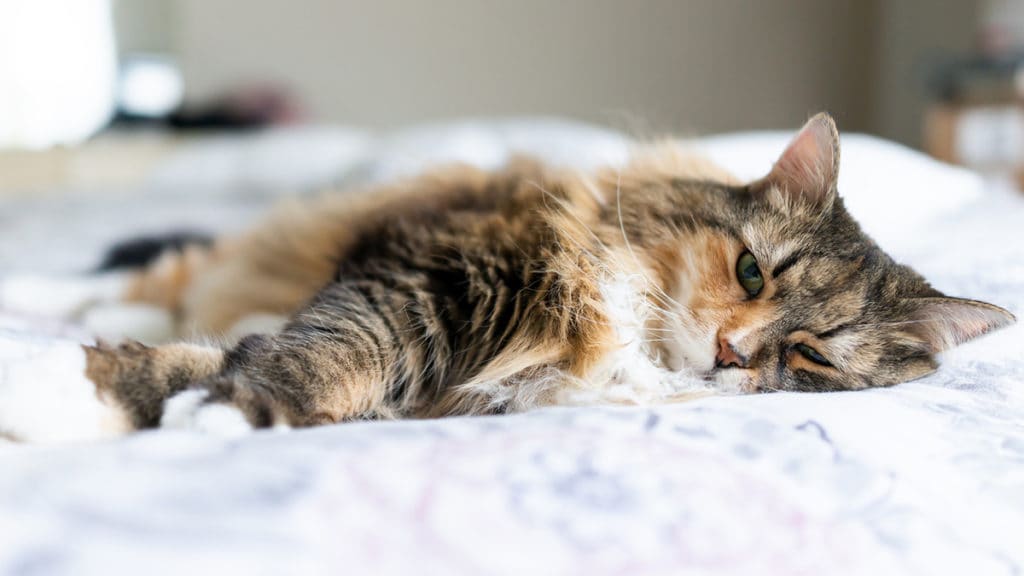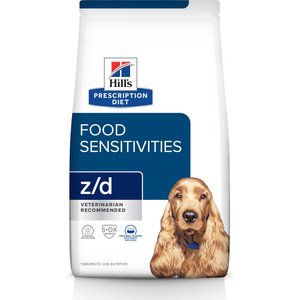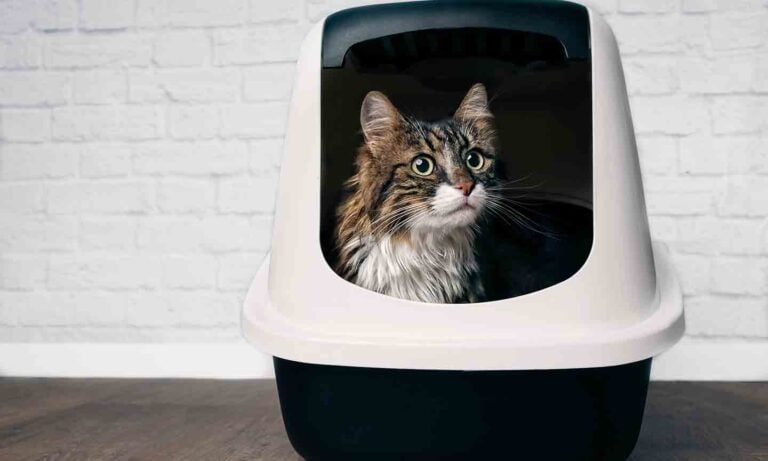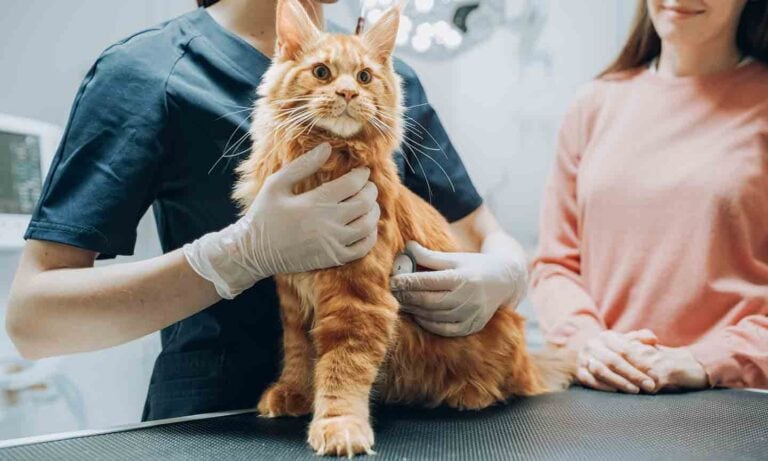Does your cat vomit regularly? Does your dog chronically experience loose stool and a picky appetite? Contrary to popular opinion, chronic vomiting isn’t normal in cats, and dogs shouldn’t have regular loose stool.
A common cause of these symptoms could be inflammatory bowel disease in dogs and cats. Learn about the cause, signs and treatment options for inflammatory bowel disease in pets.
What Is Inflammatory Bowel Disease?
Inflammatory bowel disease, or IBD, often is misused in veterinary circles as a catchall term for chronic gastrointestinal diseases—not unlike when we humans say we have a cold, but we don’t know what virus is causing it. True IBD is an autoimmune disease caused by inflammation in the gastrointestinal system due to an overactive immune system.
Signs of Inflammatory Bowel Disease in Cats and Dogs
The signs of IBD in dogs can include:
- Weight loss
- Low energy
- Vomiting
- Excessive gas
- Loud intestinal sounds
- Diarrhea
- Nausea
- Poor appetite
Signs of IBD in cats can include:
- Large amounts of diarrhea
- Weight loss
- Vomiting
Technically speaking, there are several diseases that can cause the same signs as IBD in dogs and cats. These include diseases with mouthful names like food responsive enteropathy, exocrine pancreatic insufficiency and small intestinal bacterial overgrowth. Also, things like parasites, cancer, infectious diseases, chronic pancreatitis, hyperthyroidism in cats, intestinal obstructions, kidney disease and liver disease can cause the same symptoms.
While all of these diseases can exhibit similar signs, they all require different treatments, and sometimes pets can have more than one disease. This is why testing for the root cause of the signs is critical.
Diagnosing Inflammatory Bowel Disease in Cats and Dogs
If your veterinarian suspects that your dog or cat has IBD, recommended testing may include fecal testing, bloodwork and urine testing—so make sure to bring in a fresh stool sample! Your veterinarian also might recommend surgery to get a biopsy of the small intestines or may give you the option to get an abdominal ultrasound first.
Many pet parents are reluctant to pursue the biopsy and end up getting an abdominal ultrasound instead, which is cheaper and less invasive. The problem with this approach is that an abdominal ultrasound cannot provide a definitive diagnosis of IBD.
My advice to pet parents is this: If your veterinarian recommends pursuing biopsy, unless your dog or cat is old and debilitated and anesthesia is a concern, or if your veterinarian has palpated a mass in the abdomen, skip the ultrasound and go straight to surgery.
In my experience, if your dog or cat has IBD, the ultrasound is a waste of your money, and the pet ends up going to surgery anyway. Furthermore, without a proper diagnosis, veterinarians can only guess at the cause. In doing that, you are wasting more time and money on trying treatments that don’t work.
Treatment of Inflammatory Bowel Disease in Dogs and Cats
In dogs and cats, IBD is managed, not cured, and it can take some trial and error to get the correct treatment for your pet. Because the gut is chronically inflamed, it will take some time and testing to get the treatment right, so brace yourself for multiple veterinary visits—at least in the beginning. If you ever have experienced any chronic GI distress yourself, then you know this well.
Treatment for IBD in cats and dogs typically consists of starting a diet trial for your pet. Diet is a very important part of managing IBD. Your veterinarian may prescribe a novel protein diet (such as a duck or lamb), a therapeutic gastrointestinal diet (which are specially formulated to help support digestion) or a hydrolyzed diet (diets in which the proteins have been broken into pieces that are so small that the immune system no longer reacts to them).
Common diets recommended by veterinarians for IBD in dogs and cats include:
- Hill’s Prescription Diet I/D Digestive Care cat food
- Royal Canin Veterinary Diet Gastrointestinal cat food
- Hill’s Prescription Diet Z/D Skin/Food Sensitivities dog food
- Blue Buffalo Natural Veterinary HF Hydrolyzed for Food Intolerance Grain-Free dog food
- Purina Pro Plan Veterinary Diets HA Hydrolyzed dog food
These pet food diets also are formulated to include prebiotics, which are necessary for gut health.
Note: It is important to not let your pet eat ANYTHING else while on a diet trial or it will mess up the results. Diet trials usually last 6-8 weeks. If you see no improvement after 2 weeks, however, call your veterinarian.
In addition to dietary modifications, immune-modulating medications that “turn down” inflammation from the immune system may be required to treat IBD. In these cases, Prednisone usually is prescribed once or twice daily. Your veterinarian also might prescribe a probiotic, like Proviable, to correct any bacterial imbalances in your pet’s gut. Additional treatments may vary depending on your pet’s specific diagnosis.
Chronic gut inflammation can be difficult to sort out. With the proper diagnosis and treatments, however, IBD in dogs and cats can be managed, and your pet can begin the journey back to health.

Featured Image: Via iStock.com/krblokhin
Share:
















